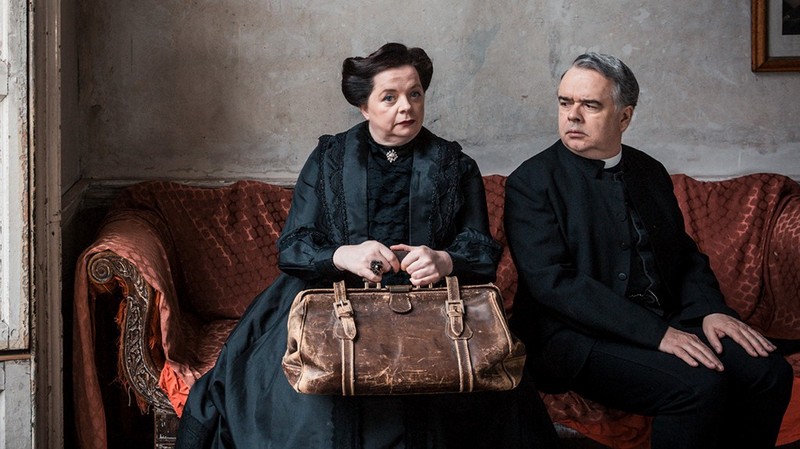
Helen Norton and Jonathan White’s 2016 play, To Hell in a Handbag, cannot make up its mind about what it is. Currently running at Bewley’s Cafe Theatre, it flounders from whim to reason, unable to explain to its audience why it exists.
To Hell in a Handbag is an imagined narrative centred on two minor characters from Oscar Wilde’s The Importance of Being Earnest: Canon Chasuble and Miss Prism. The play takes place over two meetings between the two characters, walking us through their relationship, and eventually ending with their marriage.
It is almost immediately evident that the play is not a conservative restaging of Wilde’s text. It diverges from Wilde’s work – and often not in a good way.
The famous wit of The Importance of Being Earnest is swapped out for physical gags and tone-deaf jokes, which amount to poorly executed quips about genderbending. The attraction of this play to someone who has never read Wilde is limited, as the script is full of in-jokes designed for those well read enough to understand them. The tone and humour are so far removed from what Wilde created, however, that even fans of Wilde would find it unappealing.
Miss Prism, a stereotype of a stubborn, domineering shrew, wishes to marry Chasuble, a moralising, yet frequently immoral, reverend. Neither of the characters are particularly likeable, making it difficult to empathise or engage with them in any meaningful way, yet their relationship is by far the most entertaining part of the play.
Their exchanges showcase engaging performances from Norton and White: the chemistry between them reverberates through the theatre. The strongest moments in the play are their innocuous yet hilarious conversations: they bounce immoralities off each other, attempting to outdo each other in virtue, but eventually succeeding in depravity.
Their relationship is a joy to watch as the two try to manipulate each other – taking the watcher’s mind off the play’s glaring problems.
The theme of religious oppression runs throughout the play. The reverend is simultaneously obsessed with prayer and insistent on justifying his own morally questionable actions through religion. Instead of exploiting this in any significant way, however, the performance opts to play it for laughs, turning Chasuble into a bumbling religious nut.
Although the actors’ dynamic is amusing, both the plot and structure are frequently confusing, and their characters are never really developed. The hour-long show does not create a coherent narrative, but relies on revealing secrets throughout the story. After the second or third massive mystery is solved, the plot twists feel more like slight meanderings down an increasingly bumpy road.
Although To Hell in a Handbag does succeed in creating a new world, it so alien to Wilde’s that it loses its purpose. It’s a play that constantly hints at its forefather’s legacy, without ever living up to it.
To Hell in a Handbag runs until September 7th at Bewley’s Cafe Theatre.






